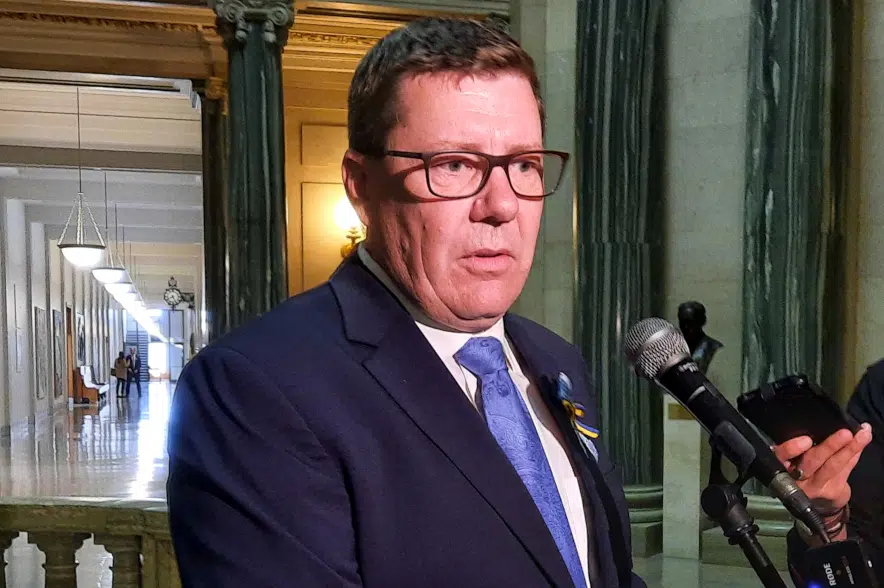Saskatchewan Premier Scott Moe and Alberta Premier Danielle Smith are already getting to work after Smith’s victory in Monday’s election.
Moe told Gormley on Wednesday he’s making plans with Smith to have a meeting to discuss Ottawa’s clean electricity standard, which aims to make Canada’s electricity grid net-zero by 2035.
Both provinces have previously expressed opposition to the federal target.
Moe said invoking the Saskatchewan First Act and starting to take constitutional actions against the federal government would not be the first step.
“This isn’t about fighting with the federal government. This is about providing reliable, affordable, accessible power here in (Saskatchewan) for the people (who) live here, but also for the industries that employ the people (who) live here,” Moe added.
He reiterated Saskatchewan will not even attempt to achieve the Ottawa’s emissions target.
“It’s unattainable as SaskPower says,” he added. “However, we’re going to continue to do everything we can to reduce our emissions in our electricity (generation).”
Moe called on the federal government to have a more moderate approach to policy development.
“A province like Saskatchewan and a premier like Danielle Smith build shields around certain industries, so that those policies don’t have a negative impact on those industries into the future,” he added.
However, both Saskatchewan and Alberta have a different legislative framework that could be used to deal with this.
Alberta’s controversial Alberta Sovereignty within a United Canada Act allows the province to push back on federal laws and policies that are “unconstitutional or harmful” to the province and gives the province the power to “direct provincial entities to not enforce specific federal laws or policies with provincial resources,” a government document said.
The Saskatchewan First Act aims to assert provincial jurisdiction over “matters exclusively assigned to Saskatchewan” by Canada’s constitution, without giving the province the power to not enforce federal laws.
Overall, Moe said he’s pleased with Alberta’s election result, adding Smith won a strong majority government with around 53 per cent of the popular vote.
“I can’t recall a federal government, majority government even, that would’ve had a percentage approval rating like that in recent history,” he said. “We are an ally with Alberta in how we generate our wealth through agriculture and energy production.”







